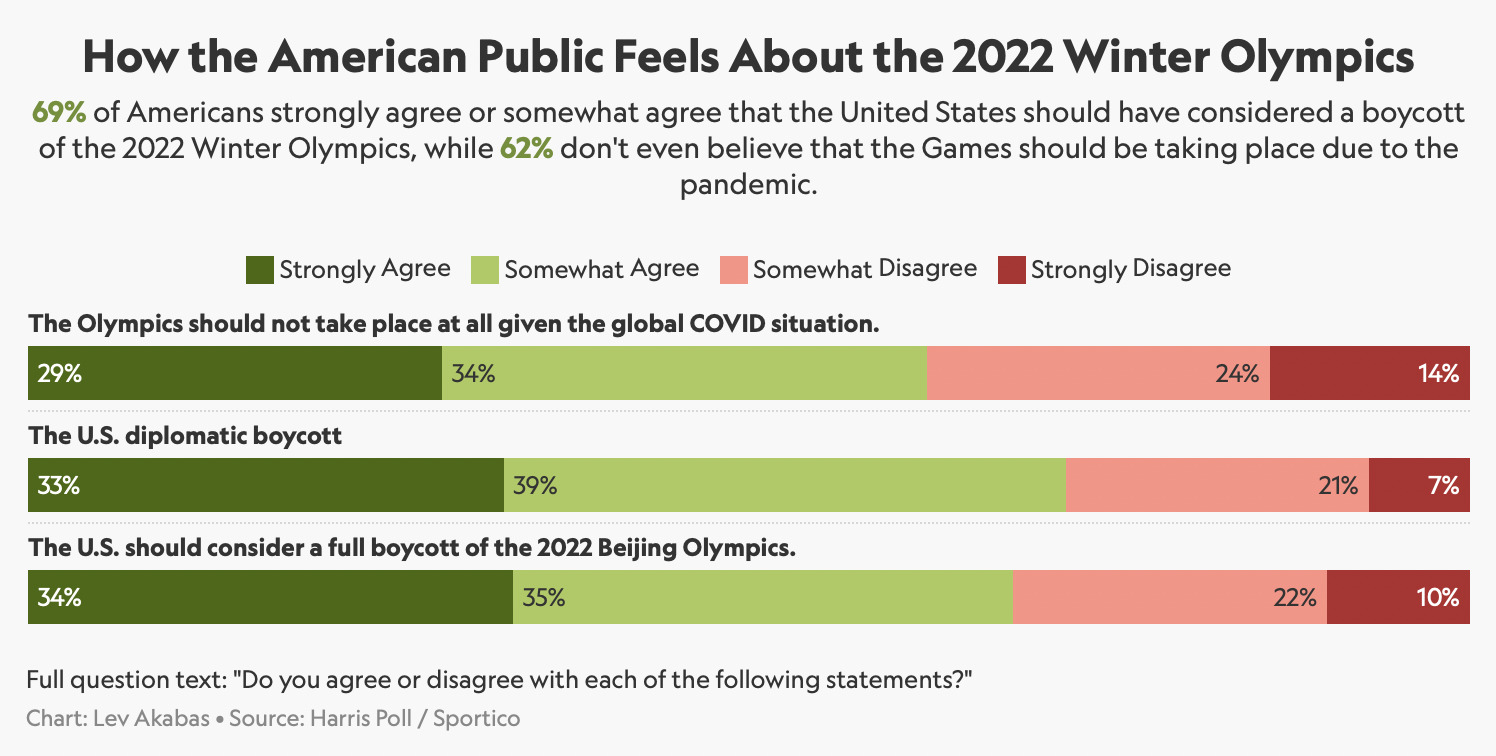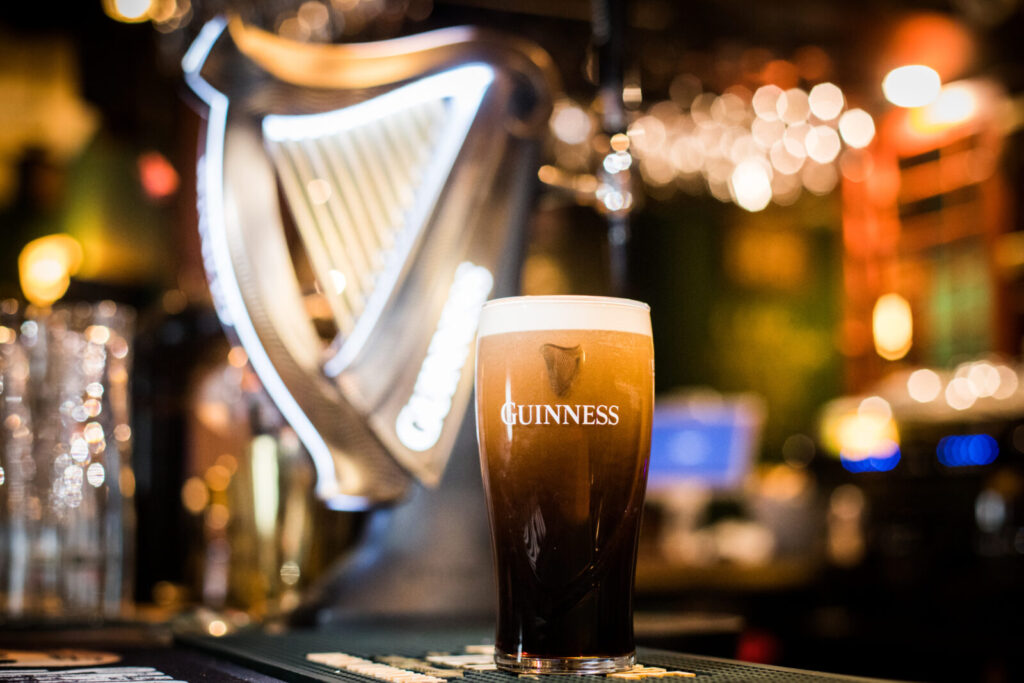Brief • 3 min Read
In The Harris Poll Tracker (Week 102) fielded February 4th to 6th, 2022 among 2,027 U.S. adults, we look at the novel way employees are leveraging their companies for raises, who Americans sided with in the Joe Rogan vs. Neil Young controversy, Americans’ lack of enthusiasm for the Winter Olympics, the dichotomy between companies and workers around office work, and the latest consumer trends in the entertainment industry.
Tune in for our America This Week: From The Harris Poll audio event this Friday at 10am EST on LinkedIn for a data driven discussion between our CEO John Gerzema and CSO Libby Rodney. They’ll be covering the latest trends in society, the economy, and the consumer marketplace.
As a public service, our team has curated key insights to help leaders navigate COVID-19. Full survey results, tables, and weekly summaries can be accessed for free at The Harris Poll COVID-19 Portal. We will continue to actively field on a regular cadence to track the shifts in sentiment and behaviors as the news and guidelines evolve.
Pay Me More or I Quit: Workers Play Risky Game With Their Bosses: Bloomberg-Harris Poll
Half of America’s workers are ready to pile pressure on their employers according to our latest data in partnership with Bloomberg News. They’ve spent the past two years heeding their bosses’ – and the pandemic’s – unprecedented demands, and now they want more. Here’s what we found:
- Just over half of all Americans have ever asked for a raise, yet the results weren’t astounding as three-quarters say the largest raise they’ve ever received was less than (50%) of their salary.
- The new way to get a raise? Six in 10 (61%) Americans say using a job offer from another company for the sole purpose of receiving a pay raise is an ethical practice.
- Over half (55%) of workers say they are likely to seek out a job offer as leverage for a raise at their current firms – and a quarter of Americans (27%) have already done so.
- Employers beware: Employees mean business as (19%) have quit when they weren’t giving their requested raise.
- If offered outside roles, nearly two-thirds (64%) say they would quit their current jobs, with Millennials the most likely to jump ship, followed by Gen Z, Gen X, and Boomers.
Takeaway: Employees should be careful of these ultimatums as even if employers do match outside offers. It might decrease their willingness to invest in you if you seem ready to leave, says Catherine Golladay, head of Schwab Workplace Financial Services.
Spotify Scandal: Divide Over Free Speech and Preventing Misinformation
Despite a majority of Spotify users siding with Joe Rogan in the Neil Young controversy, over a quarter (28%) are considering switching platforms and a fifth plan to or have already canceled (21%). Here’s what we found:
- Over half (55%) of Spotify users familiar with the controversy are on Joe Rogan’s side, saying: “one artist shouldn’t be able to call for the censorship of another; especially when musical artists use curse words, mistreatment of women, and violence in their lyrics. All artists are entitled to equal freedom of speech.”
- The other side (45%) are with Neil Young, saying “artists should be able to use any influence they have to raise awareness for issues they believe are important and Joe Rogan is spreading misleading information that could harm the public health.”
- Rocking in the Free World: However, among the general public, two-thirds (66%) of Seniors 65+ and (56%) of all Americans familiar with the controversy are on Neil Young’s side.
- For What It’s Worth: Those 18-34 are divided (51% Joe Rogan; 49% Neil Young) and those 35-44 are on the side of Joe Rogan (56% vs 44%).
Takeaway: Companies reliant on subscriptions need to be aware of how some content may alienate users enough that they leave over disagreements with what is being said, something Spotify is reckoning with as they try to grow beyond a 100 million users by 2025.
Americans Disapprove Of Beijing Games And Want Boycott, Poll Finds: Sportico-Harris Poll
If you sense that fewer people care about the 2022 Olympics than usual, you’d be right according to our latest survey with Sportico. In fact, a majority of Americans don’t believe they should be even taking place due to COVID and China’s human rights record.
- Three-fifths (62%) of Americans agree that due to COVID, the Winter Olympics should not be occurring at this time – with even Democrats (71%) and Republicans (55%) in agreement.
- Nearly three-quarters (72%) agree with the decision by the U.S. government on their diplomatic boycott due to Chinese human rights abuses, with Democrats (79%) and Republicans (70%) also in agreement.
- Older generations are also on board: (84%) of Boomers think the diplomatic boycott was the correct move, compared with (75%) of Gen X, (63%) of Millennials, and (54%) of Gen Z.
- Further, (69%) of Americans would have somewhat or strongly considered a complete boycott of the Olympics by not sending athletes to compete (Republican: 68%, Democrat: 74%).

Takeaway: It’s not just our survey: while the Olympics is typically a significant event for marketers due to viewership, Sports Illustrated is reporting the current competition is on track for the lowest-rated Winter Olympics in American television history.
There Is No One Path Back To The Office, But There Are Some Best Practices: OfficeSpace Software-Harris Poll
While most workers have returned to the office, a majority don’t want to work there full time, and the complete return remains in flux according to our survey with OfficeSpace Software and featured in Forbes. Here’s what else we learned:
- Most working from an office pre-pandemic (54%) have already returned full time. Despite this finding, many of those workers (51%) are not interested in going into one daily.
- But they might not have final say in the matter: Almost half (48%) of respondents reported that their employers want their organizations to come back to the office full time.
- What is revealing is how many (43%) would quit their jobs if their employer forced them to return to the office daily.
- What do workers miss about office life? Many miss the social time with colleagues (73%), in-person collaboration and meetings (29%), and a dedicated workspace (29%). But a majority (55%) don’t miss the work commute.
- Most employees concur on mandated vaccination proof, employer inducements for receiving the vaccine and mandatory masking for all employees (70%).
Takeaway: The result means that companies and organizations must walk a fine line to reopen offices properly and return to some semblance of normal operations – even as “normalcy” is difficult to achieve and even harder to define.
Entertainment: An Industry Snapshot
Our recent report on the current state of the entertainment industry explores consumer trends across virtual events, streaming services, and NFL fandom. We look at popular entertainment brands, ranking the leaders in brand equity and growth. Here’s what we found:
- While many Americans (45%) are wary of attending in-person events given the current COVID-19 situation, over half (52%) feel isolated at virtual events.
- Younger streamers use more services as (21%) of Millennials – compared to only (6%) of Boomers – use seven or more streaming platforms.
- Almost half (46%) of Millennials say they are likely to cancel a streaming subscription in the next three months, versus (20%) of Boomers.
- The NFL sees a surge in momentum with younger fans: Gen Z (33%) and Millennials (30%) reported most often that they watched more NFL games this season than last (v. 22% of Boomers).
- Lastly, Netflix topped the list of entertainment brands in Q4, with a brand equity score of 71.5%.
- Fox News Channel saw the greatest growth in brand equity with 2.6% growth from Q3 to Q4, 2021.
Takeaway: The entertainment industry is constantly evolving and brands must keep abreast of developing trends to meet or exceed future consumer expectations.
Subscribe for more Insights
Subscribe to our newsletter for the latest trends in business, politics, culture, and more.
Download the Data
This survey was conducted online within the U.S. by The Harris Poll from February 4 to 6, among a nationally representative sample of 2,027 U.S. adults.
Download
Subscribe for more Insights
Subscribe to our newsletter for the latest trends in business, politics, culture, and more.
Download the Data
This survey was conducted online within the U.S. by The Harris Poll from February 4 to 6, among a nationally representative sample of 2,027 U.S. adults.
DownloadWant to see more from our weekly COVID Tracker?
Related Content








